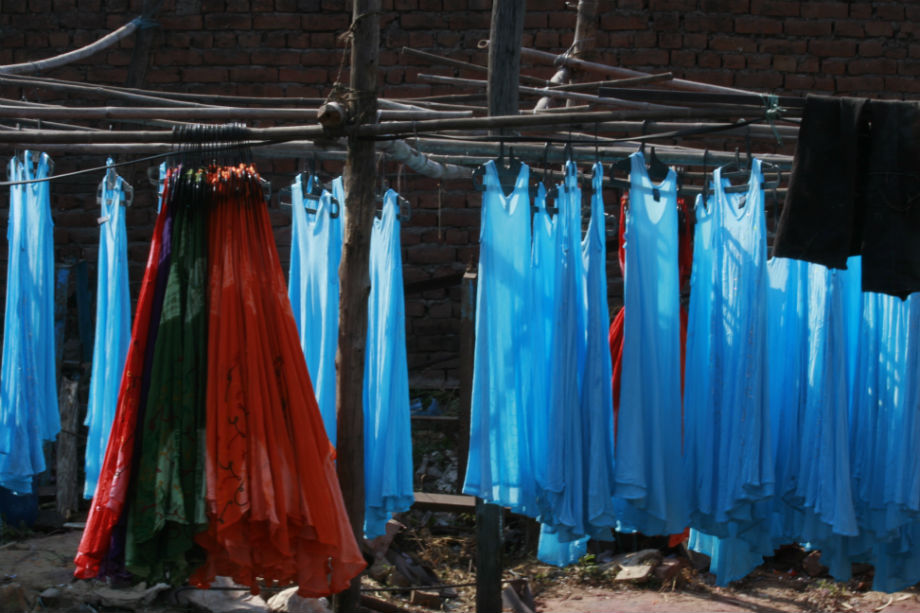
After the ordered chaos of Hong Kong, India is the real deal: donkey-carts competing with Landcruisers, tuk-tuks and Toyotas. Dogs, cows and pigs rooting through garbage piled on street corners. Beggars camped under plastic sheets in roundabouts. Horn-honking dust-in-your-face mayhem.

In the morning light I stand on a street corner, shooting photos. The men look me in the eye, openly curious and mugging for my camera . The women look straight ahead, occasionally smiling but never losing the purpose in their stride. When I ask a
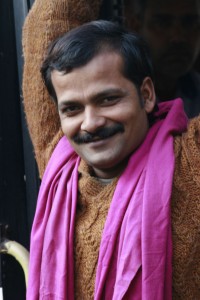
female employee at our hotel about this she says, “women must not linger. The young men will taunt us. Is it not this way where you live?” In Delhi at night there are few women on the street and none without the company of a man. I have never seen a city with so few women on the street after dark.
In the north, it’s easy to have the impression that men have a monopoly on gainful employment. Men take orders in the restaurants, work in the shops, take train tickets, drive most of the cars and motorbikes. Men do the talking. If you ask a woman a question the closest man in any proximity will answer for her. A subtle form of taunting perhaps. I wonder how a woman in this country every became the head of government.
We hear the fireworks (literally) of weddings every 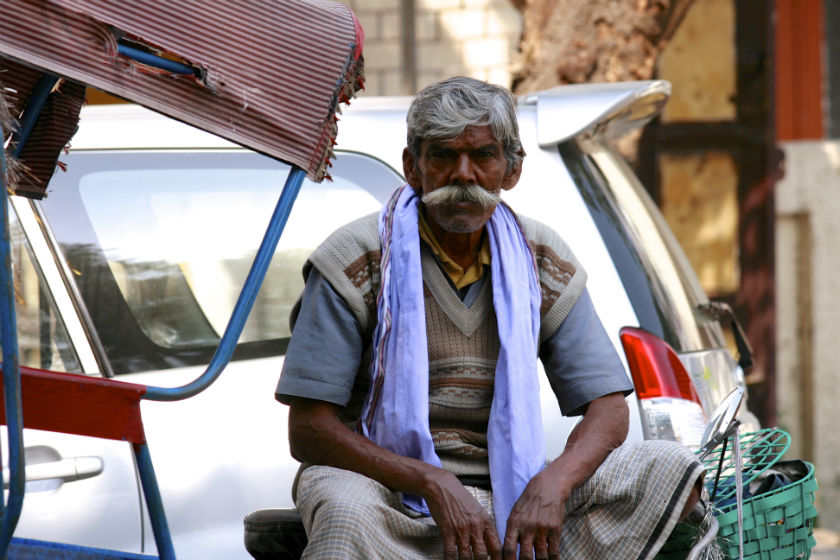 night. The groom arrives on a horse, or, if he is from a wealthy family, an elephant. In Jaipur we chance upon such a wedding. At the head of the procession are two elephants, several camels, a troop of horses and a huge uniformed marching band. Our driver, Mr. Singh, tells us that the groom’s family is making a statement to the bride’s. Horns blare
night. The groom arrives on a horse, or, if he is from a wealthy family, an elephant. In Jaipur we chance upon such a wedding. At the head of the procession are two elephants, several camels, a troop of horses and a huge uniformed marching band. Our driver, Mr. Singh, tells us that the groom’s family is making a statement to the bride’s. Horns blare 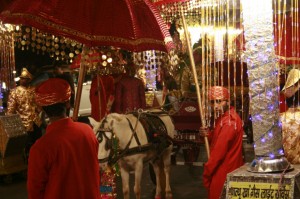 and drums beat and the groom’s family, the men bedecked in pink turbans, dance happily as the parade winds it’s way toward the wedding pavilion. The groom is plump and baby-faced—after all the pomp and pageantry he seems rather
and drums beat and the groom’s family, the men bedecked in pink turbans, dance happily as the parade winds it’s way toward the wedding pavilion. The groom is plump and baby-faced—after all the pomp and pageantry he seems rather 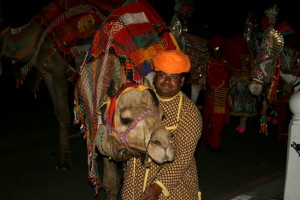 underwhelming. Behind the whole procession is a silver carriage—hard to describe, really—think Cinderella between the pumpkin and midnight and you get the picture. Mr. Singh assures us that the bride’s family will have staged an equally ostentatious welcome.
underwhelming. Behind the whole procession is a silver carriage—hard to describe, really—think Cinderella between the pumpkin and midnight and you get the picture. Mr. Singh assures us that the bride’s family will have staged an equally ostentatious welcome.
Within a block of the rich wedding we pass another wedding procession—a ‘band’ with only two drums, two horns and a scrawny nag of a horse. The groom, leaner and more capable looking than the rich groom, carries himself with the stoicism of one who accepts his lot. A handful of relatives dance in front of him. “Lower caste,” Mr. Singh says, “no money.”
I’m struck by the contrasts and complexities of India. Bollywood videos play on every television channel and although I don’t understand Hindi the plots seem predictable—attractive, scantily clad but fickle girl rebuffs boy in tight pants and shiny red or blue shirt, dancing, singing, titillating until finally something ‘unexpected’ happens—they come together happily. It has been destined.
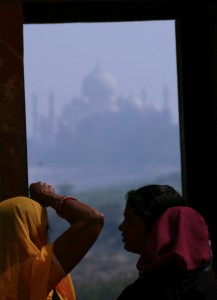 The fantasy is remarkable in a country where most marriages are arranged, the women wear beautiful clothing but would never dream of going out in the outfits the Bollywood stars wear. Still love is always in the air. The Taj Mahal, the most beautiful building I’ve ever seen, built by a king to symbolize his love for his favourite (third) wife. She died giving birth to their fourteenth child but she is remembered as perhaps no woman has ever been remembered.
The fantasy is remarkable in a country where most marriages are arranged, the women wear beautiful clothing but would never dream of going out in the outfits the Bollywood stars wear. Still love is always in the air. The Taj Mahal, the most beautiful building I’ve ever seen, built by a king to symbolize his love for his favourite (third) wife. She died giving birth to their fourteenth child but she is remembered as perhaps no woman has ever been remembered.
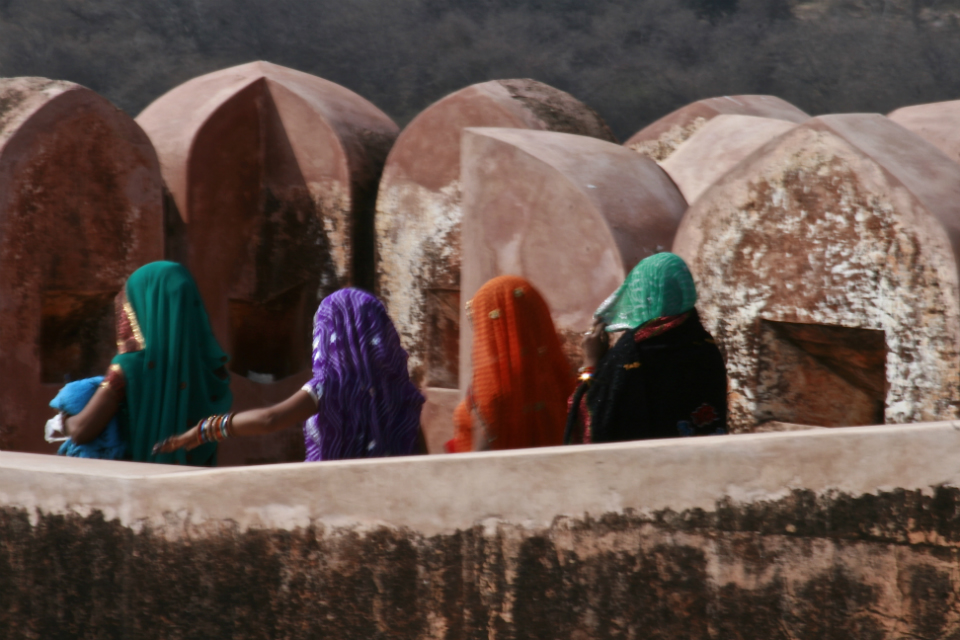 What are the consequences of going against parent’s wishes and having a ‘love’ marriage? The stakes are high. Ironically, the young guide who took us to the Taj Mahal apologized for being distracted. He had a girlfriend, something which in itself is unusual here. A few days ago her family (of a lower caste) had kidnapped her and taken her away to Delhi where she was to be married to someone of the parents’ choosing. He told us she had
What are the consequences of going against parent’s wishes and having a ‘love’ marriage? The stakes are high. Ironically, the young guide who took us to the Taj Mahal apologized for being distracted. He had a girlfriend, something which in itself is unusual here. A few days ago her family (of a lower caste) had kidnapped her and taken her away to Delhi where she was to be married to someone of the parents’ choosing. He told us she had 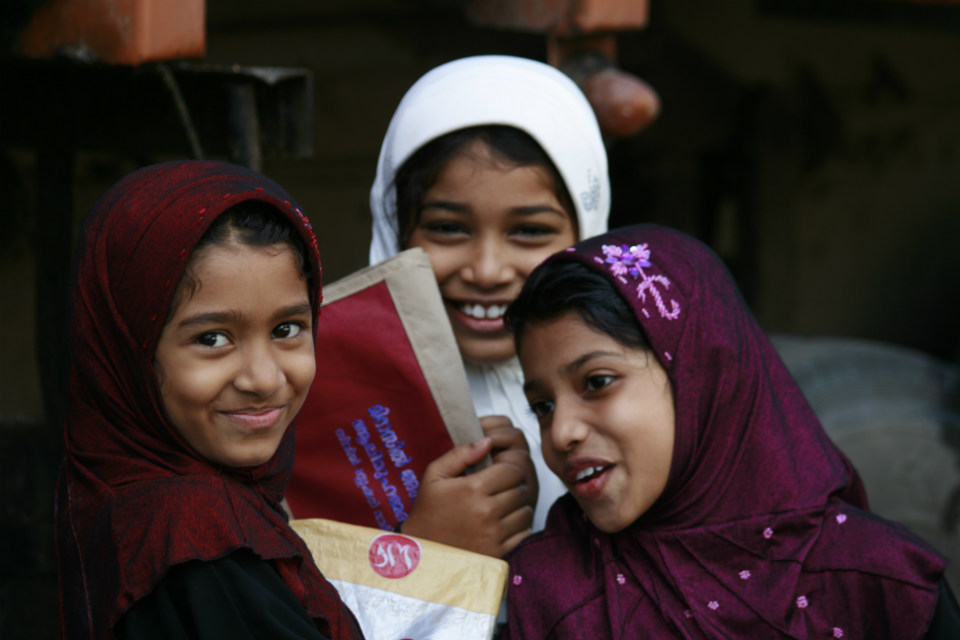 called and told him she had been beaten for two days because she had not submitted to her parent’s wishes. We wondered why he didn’t just go to Delhi and kidnap her back—a very Eurocentric option it seems. He hadn’t thought of this. “But you must realize she could be killed or disfigured if I do this. It would bring shame to her family and they couldn’t just sit still and do nothing.”
called and told him she had been beaten for two days because she had not submitted to her parent’s wishes. We wondered why he didn’t just go to Delhi and kidnap her back—a very Eurocentric option it seems. He hadn’t thought of this. “But you must realize she could be killed or disfigured if I do this. It would bring shame to her family and they couldn’t just sit still and do nothing.”
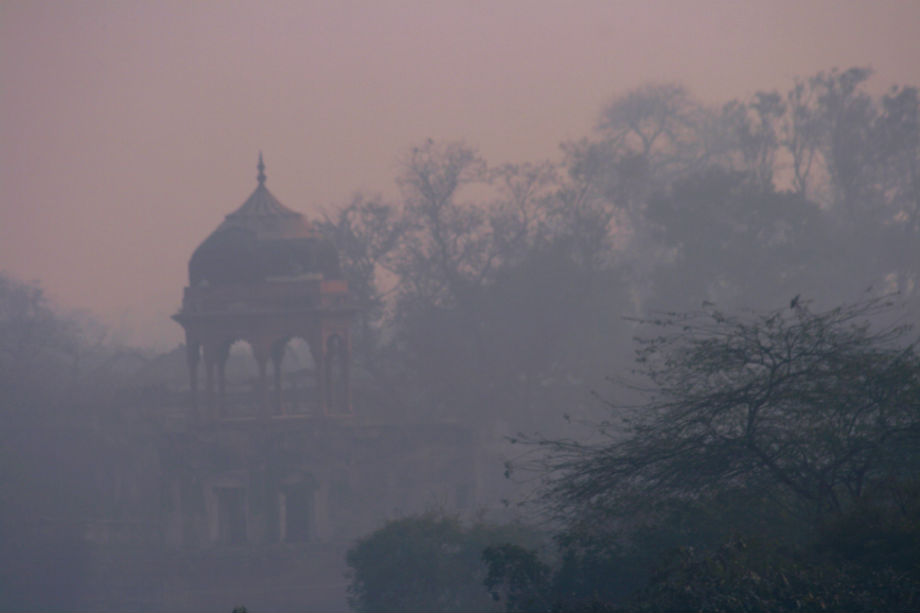
I will leave the last word on this to Mr. Singh. He is of the second highest caste. He and his wife will arrange his daughter’s wedding. The groom will be of the same caste and the guests will also be of the same caste. She will not have seen the boy. If it were to be otherwise his family would never speak to him, as he does not speak to a nephew who married outside of his caste. I asked Mr. Singh if he thought India would be worse off, or better off, with no castes at all. He didn’t hesitate: “India would be better off with no castes—no question.”
Do I hear a new novel brewing Michael? Love all the updates!
A new novel is brewing Katherine, but it will be a sequel to My Heart is Not My Own. Thanks for reading and commenting!